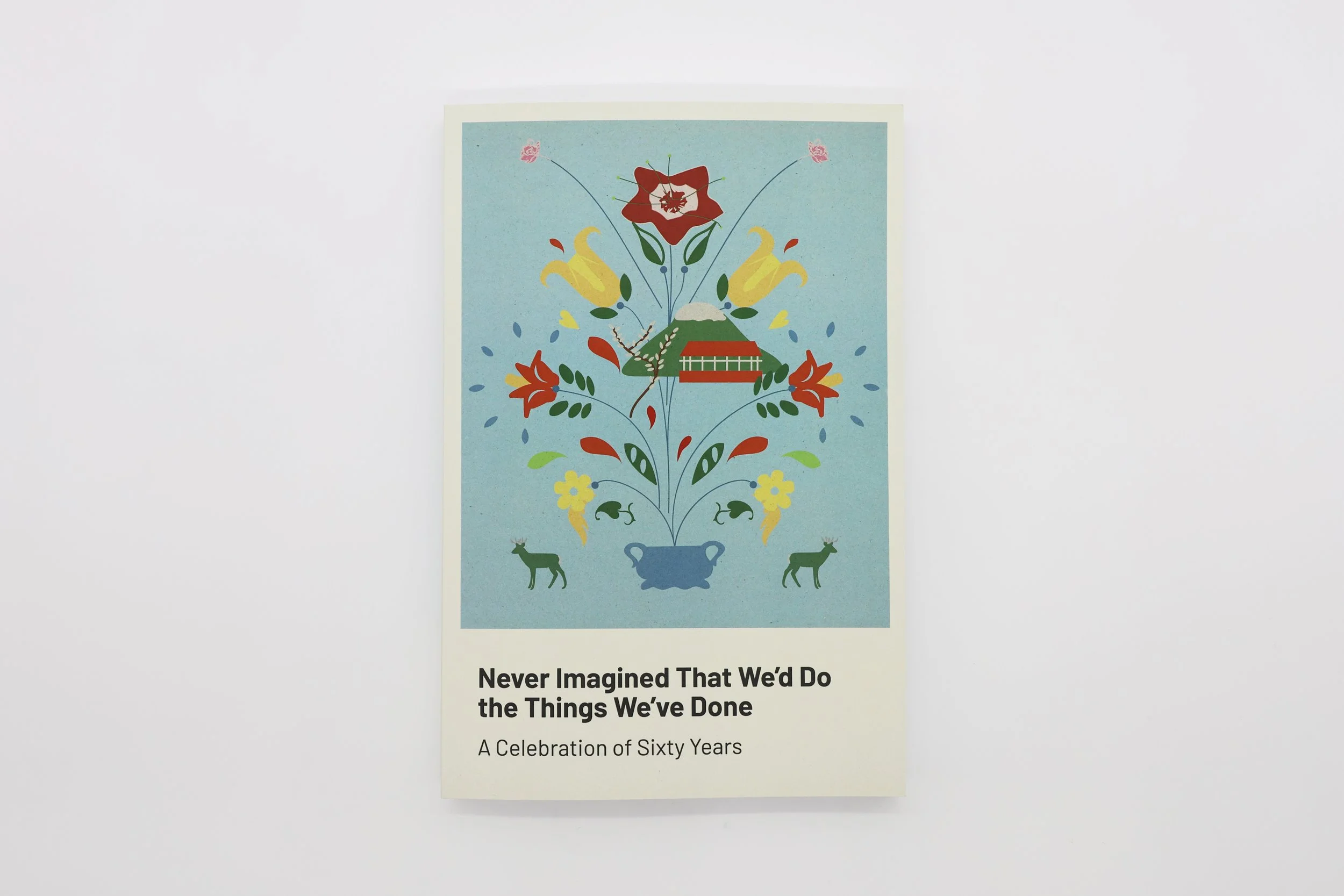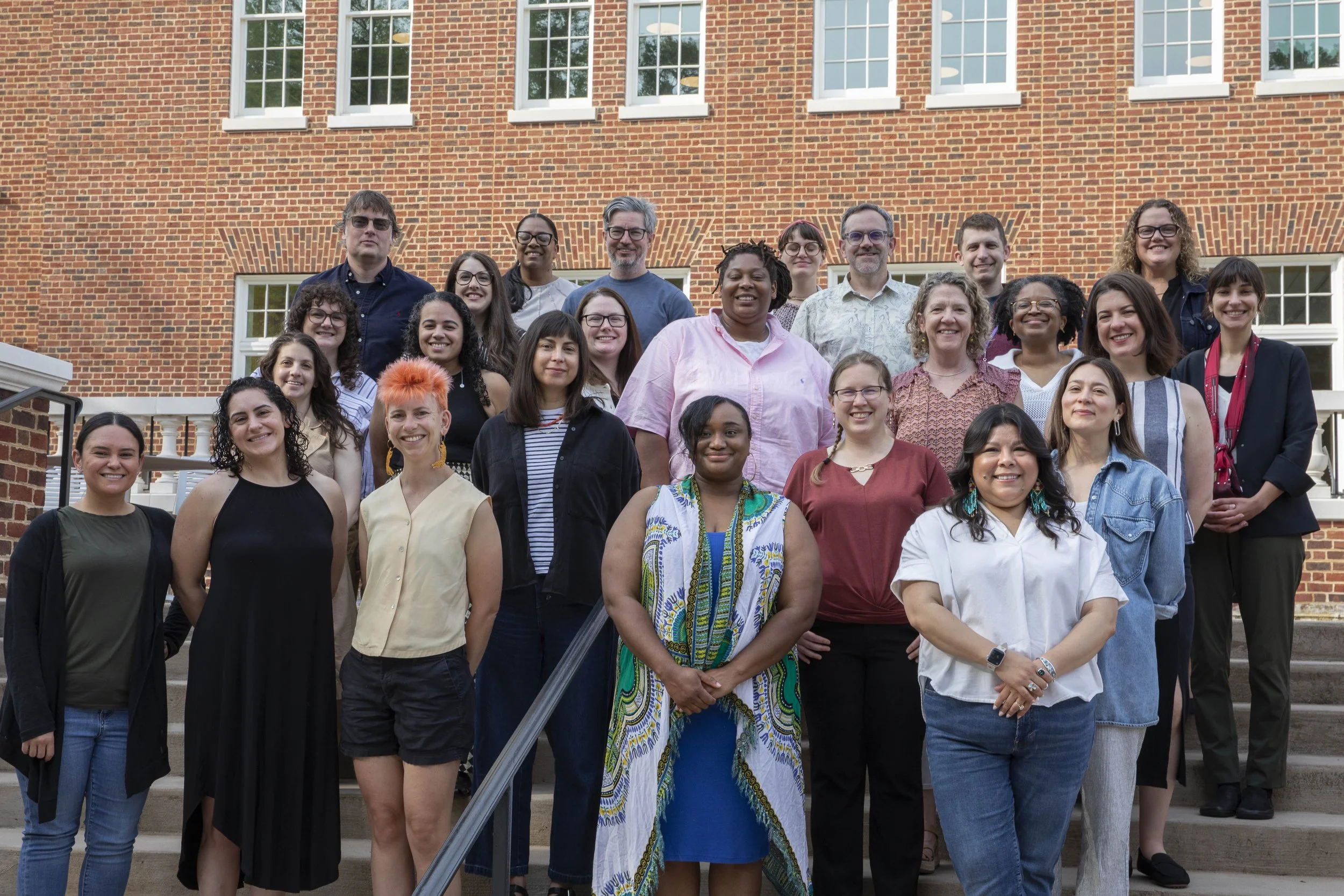Celebrating Year 1 of Bright Archives
Here’s a glimpse into the design process for the Bright Archives logo, showcasing many of the rejected versions before landing on the perfect fit. The final version of the Bright Archives logo and wordmark is in the center.
Looking Back
As we close out our first year of owning a small business, we’re reflecting on how much we’ve grown in just 12 months. Opening Bright Archives in October 2023 felt like stepping into uncharted territory—exciting and a bit terrifying—as we made the leap from academia to entrepreneurship. Every milestone, from drafting the business plan to closing out our first project, felt monumental. Each small success, whether it was helping a client get crucial funding or reaching 100k views on our artist documentary, encouraged us to keep going and cemented our strong belief in our vision for this business—to help as many people as possible recognize the value of their archives by preserving their history and bringing it to life through dynamic storytelling.
Twelve months later, we’ve worked on 27 projects across 18 different organizations, from helping them assess their archives to supporting the preservation of historic architectural landmarks.
One of the most rewarding parts of this year has been the relationships we’ve built with our clients and the new people we’ve met across our multi-faceted community, which includes cultural heritage groups, non-profits, museums, universities, small businesses, hospitals, and corporations. We’re excited to support the incredible work of teams at the Pittsburgh Cultural Trust, Nelson-Atkins Museum of Art, and Brew House Arts, as well as talented artists like slowdanger and Jon Rubin. Working with clients and understanding their unique situations allowed us to tailor our services and make sure we’re meeting their needs. Their feedback has been invaluable, guiding us in refining our work and ensuring that we’re making a positive impact.
Of course, the year wasn’t without its challenges. We faced some unexpected hurdles, like supply chain issues with our archival equipment, which really tested our resilience. Each setback taught us lessons about adaptability and problem-solving, and we quickly learned that flexibility is key. In any business, there will be ups and downs, and how we navigate those challenges can make a big difference in the long run. Our ability to adjust plans quickly has made all the difference.
And some of the challenges we've faced have led to valuable benefits. Early on, we recognized that traditional collection assessments weren't working for some of our clients, particularly teams and organizations outside typical archival settings (e.g., government and university archives). To better meet our clients' unique needs, we revamped our approach and created a thorough, results-driven process for assessing collections. Now, alongside an on-site review of the materials, we conduct interviews with key people in the organization to gather insights about their needs, challenges, values, goals, and long-term vision for both their collection and the organization itself. These conversations were the missing piece of the puzzle, enabling us to create tailored recommendations and develop a clear roadmap or business plan for our clients’ archives.
Over the past year, our work has also involved helping people and organizations create records and documentation for their archives and personal collections, especially through our videography services. Pittsburgh is home to so many talented artists and arts organizations, and one of our goals is to help them create meaningful documentation of their work. Without a way to preserve history, we risk diminishing richness in community identities, facing decreased public trust, and running into legal and administrative challenges, not to mention missed opportunities for learning and fundraising. All of this can lead to fragmented understanding and decision making, which ultimately stifles growth.
So, earlier this year, we started asking ourselves how we could help artists with documentation. We assisted the Pittsburgh Cultural Trust in documenting three installments at The National Museum and two exhibitions by artists Lenka Clayton and Phillip Andrew Lewis in downtown Pittsburgh. We also produced a documentary about artist Zoë Welsh and supported artists Dafna Rehavia and David Hanauer in documenting their Invisible Wounds Project.
Moving Forward
As we move into our second year, we’re excited to continue implementing new strategies based on the lessons we learned in year one. We also have quite a few new side projects in the works, from continuing our FAQs video series to our forthcoming book on oral history with Rowman & Littlefield. The experiences in our first year of business ownership have shaped our approach, and we’re eager to continue growing and evolving.
If you’re considering starting your own business or are currently on this journey, remember that every challenge can be an opportunity. As cliché and frustrating as that might sound, we’ve found that it’s actually true. Depending on how we respond to them, challenges help us to grow and adapt, which leads to a more resilient business and more meaningful results overall.
Here’s to another year of growth, learning, and making a positive impact!











